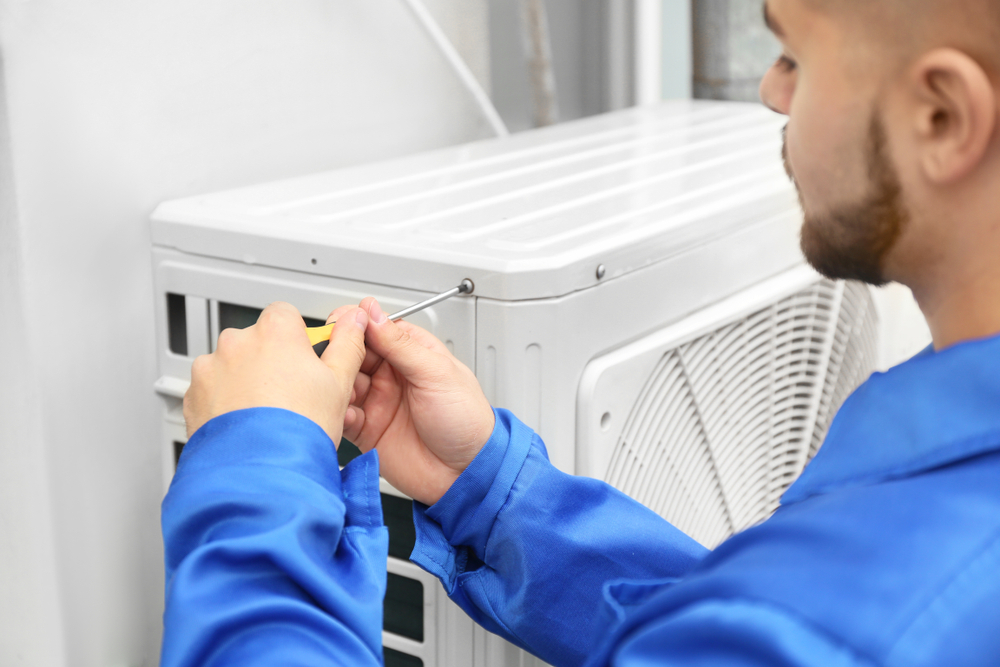As the temperatures rise during the summer months, air conditioning becomes a necessity in many homes. Domestic air conditioning installation offers a comfortable and cool living environment, enhancing our overall well-being. However, installing an air conditioning system requires careful planning and professional expertise to ensure optimal performance and energy efficiency. In this informative blog, we will explore the key aspects of domestic air conditioning installation, including the types of systems available, factors to consider before installation, and the benefits it brings to your home.
Types of Domestic Air Conditioning Systems
Before delving into the installation process, it is essential to understand the different types of air conditioning systems available for domestic use. The most common options are split systems and ducted systems. Split systems consist of an indoor unit mounted on the wall or ceiling and an outdoor unit connected by refrigerant pipes. These systems are suitable for cooling individual rooms or specific zones. On the other hand, ducted systems are designed to cool the entire house by distributing cool air through a network of ducts hidden in the walls or ceiling.
Factors to Consider Before Installation
Several factors should be taken into consideration before embarking on a domestic air conditioning installation project. Firstly, determining the cooling requirements of your home is crucial. Factors such as room size, insulation, and climate must be evaluated to choose an appropriately sized system for optimal efficiency. Additionally, it is vital to consider the location of the indoor and outdoor units. The indoor unit should be strategically placed to ensure uniform cooling and minimal obstruction, while the outdoor unit must have adequate space for proper airflow.
Another essential factor is energy efficiency. Look for systems with high energy efficiency ratings (such as SEER and EER) to reduce energy consumption and minimize environmental impact. Moreover, consider the noise level of the system, especially if you plan to install it in a bedroom or living area. Opt for models with quiet operations to avoid disruptions.
The Installation Process
Installing a domestic air conditioning system is a complex task best left to professionals. Here is a general overview of the installation process:
Site Assessment: A professional technician will visit your home to assess the layout, electrical requirements, and other considerations necessary for a successful installation.
Unit Placement: Based on the assessment, the technician will determine the optimal locations for the indoor and outdoor units. They will ensure proper spacing, access to power sources, and sufficient ventilation.
Ductwork (for ducted systems): If you opt for a ducted system, the technician will install the ductwork, ensuring it is correctly sized and positioned to deliver efficient cooling throughout the house.
Refrigerant Lines: For split systems, the technician will connect the indoor and outdoor units using refrigerant lines. These lines carry the refrigerant responsible for cooling the air.
Electrical Connections: The technician will make the necessary electrical connections to ensure the system operates safely and efficiently. This includes wiring the indoor and outdoor units to the main power supply.
Testing and Commissioning: Once the installation is complete, the technician will test the system, ensuring proper airflow, cooling capacity, and thermostat functionality. They will also demonstrate how to operate the system effectively.
Benefits of Domestic Air Conditioning Installation
Installing air conditioning in your home has several benefits. Firstly, it provides a comfortable living environment by regulating the temperature and humidity. This is especially important for individuals with respiratory conditions or allergies. Secondly, air conditioning improves indoor air quality by filtering out dust, pollen, and other pollutants. Additionally, modern systems come with energy-saving features, reducing utility bills and minimizing your carbon footprint. Lastly, air conditioning can increase the value of your home, making it an attractive feature for potential buyers.
Conclusion
Domestic air conditioning installation offers numerous advantages, from enhanced comfort and improved air quality to energy efficiency and increased property value. By understanding the types of systems available, considering key factors before installation, and relying on professional expertise during the installation process, you can enjoy the benefits of a well-functioning air conditioning system in your home. Stay cool and beat the summer heat with a professionally installed domestic air conditioning system. If you’re looking for experienced AC installers who know how to do the job right, contact us today; we can help.


